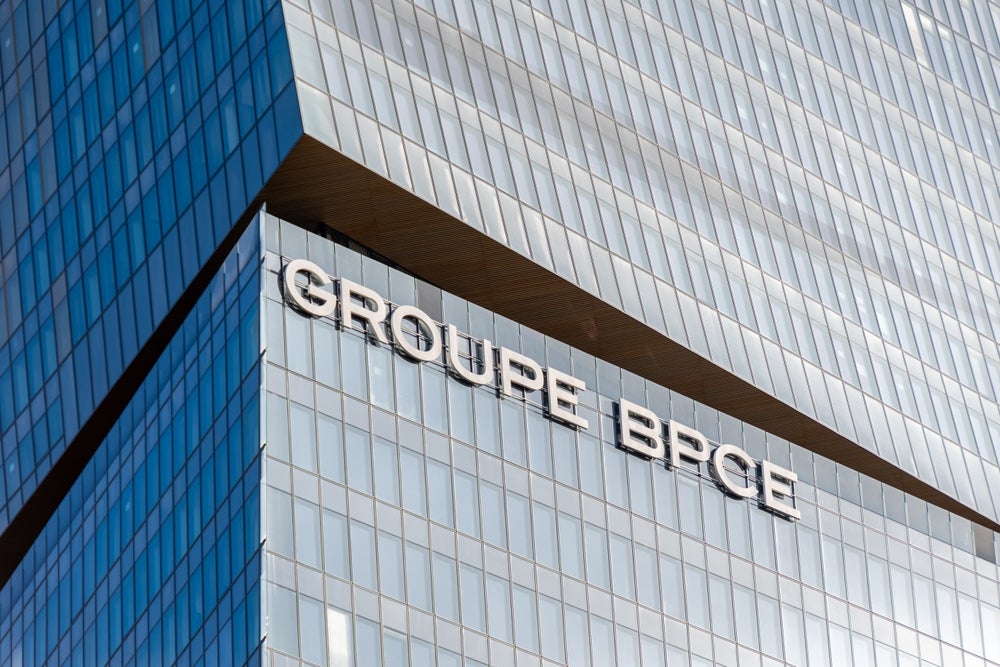
Data from Grant Thornton’s global business survey shows that only Sweden with 90%, and the US with 89% could boast a higher proportion of businesses holding leases than France, which with 88% was ahead even of the UK.
While the 54% of French respondents who expressed confidence that they would be in compliance with new lease guidance once required was lower than every other country except Japan, lessors will take heart from a continuation of the growth that gave cause for optimism last year.
Association Française des Sociétés Financières (ASF) figures show a positive trend in the French equipment and real estate leasing markets, with an increase of 6.9% in equipment leasing in the first half of the year, and a 7.1% rise in real estate leasing – following increases of 7.8% and 6.2% respectively in the second half of 2016.
Equipment leasing growth slowed slightly between January and June in comparison to the first half of 2016, but €13.4bn (£11.84bn) of new production was recorded in the first six months of 2017. While this slight decrease could be the result of the end of the exceptional amortisation of 40% on investment introduced until 15 April 2017, the end of this tax incentive on equipment did not cause a major breakdown in activity.
Françoise Palle-Guillabert, director general of ASF, says the industry is reasonably satisfied with levels of market growth, which seem to show a relative stabilisation.
“Our members are optimistic for the end of this year and the next few years in connection with the recovery of the French economy,” she says.
How well do you really know your competitors?
Access the most comprehensive Company Profiles on the market, powered by GlobalData. Save hours of research. Gain competitive edge.

Thank you!
Your download email will arrive shortly
Not ready to buy yet? Download a free sample
We are confident about the unique quality of our Company Profiles. However, we want you to make the most beneficial decision for your business, so we offer a free sample that you can download by submitting the below form
By GlobalData“The penetration rate of equipment leasing in France is about 30%, which means there is still room for manoeuvre – especially with the digitalisation of the product, which will attract new clients.”
On the subject of government action to support the lease finance industry, the newly elected French government announced two ambitious action plans. The first was dedicated to the reduction of the administrative burden on companies, while the second was the 2018-2022 investment plan of €57bn, of which €13bn has been earmarked for boosting innovation and digitalisation.
“The French leasing industry welcomes these announcements and the government’s desire to stimulate companies’ investment,” says Palle-Guillabert. “Leasing should benefit from these initiatives.”
ASF supports the reintroduction of tax incentives that contribute to improving the quality and competitiveness of companies, she continues. “The last two tax incentives for equipment leasing [2015-2017 exceptional amortisation of 40% on investment] and real estate leasing [between 2009 and 2012 the client was allowed to spread the capital gain taxation over the length of the lease back contract with a maximum of 15 years] have proved to be a very good means of convincing companies – and especially SMEs – to invest more through leasing.”
“Generally speaking, ASF strongly supports the idea of simplification and harmonisation – same business, same risk, same rules – in order to avoid gold-plating and to make members’ activities easier and more effective,” she adds.
Patrick Beselaere, global head of ING Lease, observes that France is the third-largest leasing market in Europe, with more than €25bn of new volumes in equipment leasing recorded in 2016 and double-digit growth for the past two years.
“It is worth stressing that growth is very similar between finance lease and operating lease products,” he says. “Although growth in volumes remains strong in 2017, the growth rate has slowed down during the second quarter to reach 4.9%. This is in line with investment rates that also slowed down between April and June to 0.7% from 1.3% in the first three months of the year.”
Beselaere agrees that this decline in growth can be explained by the end of the accelerated depreciation tax incentive that was put into place in 2015 to foster corporate investments.
“That being said, we are confident about the prospects for the lease market in 2018,” he continues. “The French economy is showing positive signs, with GDP expected to grow by 1.6% in 2017.
“The French government is also engaging in necessary reforms to sustain the economy, which will be profitable to the business environment and as a consequence to the leasing industry, clearly an increasing source of SME/mid-sized corporate finance.”
The IMF forecasts that real GDP growth will reach 1.8% in 2018, driven by buoyant corporate investment, a rebound in residential construction and solid consumer demand. However, it also acknowledges that the country’s medium-term prospects will depend on the implementation of the reform agenda.
While the output gap is projected to close over the medium term, assuming that the recovery sustains its momentum, potential growth remains constrained by modest total factor productivity growth as in other advanced economies, a stagnant working age population, high structural unemployment – especially among the young and low-skilled – and weak external competitiveness.
According to the IMF, comprehensive labour, tax and spending reforms would help raise potential growth and boost employment. Inevitably, some sectors of the lease market are performing better than others.
Alain Escoffier, general manager of BNP Paribas Leasing Solutions France, notes that when all contract types are taken together, ASF statistics indicate that the category with the weakest growth is IT hardware, which was up by just 0.6% last year with production of €3.2bn. On the other hand, the improvement was substantial for operations involving passenger vehicles (+9.3%), utility and industrial vehicles (+14.3%) and other hardware equipment (+12.2%).
“We note substantial growth for all types of contract – with or without purchase option,” he says. “According to the ASF statistics, the annual evolution of lease operations with purchase option [movable property leasing and related operations] stood at +11.6% in 2016, while operations without a purchase option were up by 10.2%.”
In parallel, the property leasing market experienced a slowdown in 2016, with production down by 5.8% relative to the previous year. ASF member companies recorded production of €4.4bn.
“In the last 12 months we have noted stronger competitive pressure as a result of several factors,” explains Escoffier. “Firstly, banking networks are applying increasingly aggressive pricing policies.
“Also, certain low-cost actors have strengthened their positions. Finally, we also note the rapid expansion of certain non-banking actors that have far fewer regulatory constraints.”
On the question of whether the company is satisfied with market growth over this period, he observes that while the dynamism of the French lease finance market is generating development opportunities for BNP Paribas Leasing Solutions, it must deal – like all participants in the market – with pressure on margins as a result of competitive tension.
“Other than Loi Macron, the positive momentum from 2016 seems to be continuing in 2017,” adds Escoffier.
The company believes the government’s budgetary and fiscal policy relative to local communities, and municipalities in particular, will have indirect consequences on the lease finance market in 2018 and 2019.
Specifically, it expects the continuous reduction of the state’s allocations, the decrease of fiscal inflows and a decline of council taxes to prompt increased usage of lease finance solutions by communities and therefore expects an increased market share for leasing and rentals in connection with public contracts.
“Moreover, we also note that local communities have launched interesting initiatives that could potentially be favourable to rental investment,” says Escoffier.
“In particular, some of them are proposing aid in order to encourage investments in vehicles that use clean energies. This is notably the case in the Île-de-France region.”
In light of such developments, he offers an optimistic assessment of the prospects for the lease market in 2018. “With regard to rolling equipment other than agricultural machinery, the markets will be on high sales cycles at the end of 2017, and should stabilise at a high level in 2018,” he notes.
“In the agricultural market, we are at the bottom of the sales cycle and the market is not showing major signs of any recovery, even though the 2017 harvest is satisfactory in terms of volume and price levels.”
With regard to technology hardware, Escoffier expects growth to remain weak, notably as a result of the increase of usage durations and the slowdown of certain markets, such as office automation.
Julien Ochonisky, CEO at SGEF France, agrees that for industrial assets, the positive trend may be regarded as a consequence of favourable tax policies, particularly Loi Macron, which gave companies the possibility to tax-deduct 140% of the asset value over the depreciation period – even when acquired using hire purchase.
“Due to delivery time, this measure had a positive impact on production until the end of the first half, and will still have some effect – albeit to a lesser extent – during the third quarter,” he says. “Regarding the transportation market, the positive trend observed during the first half of the year is likely to continue for the rest of 2017.”
In 2016, SGEF entered into a partnership with the European Investment Fund within the framework of the COSME programme, which was designed to make it easier for small and medium-sized enterprises to access finance in all phases of their lifecycle.
“This programme has proved very effective in supporting our development towards SMEs,” says Ochonisky. “Thanks to a better economic and investment climate and decent prospects in terms of economic growth, we are reasonably confident that the market will still be dynamic in 2018.”
According to Laurent Wittmann, president of Grenke France, demand for leasing from sectors with high levels of equipment obsolescence is strong. This gives him the confidence to predict that the company will grow its business in France by 15% in 2017.
“The most significant development in the French market for us over the last 12 months was the implementation of electronic signatures,” he says.
“This allows customers to sign on the move, at home or in the office securely with single use passwords on their electronic device or smartphone.”
DLL refers to particularly strongly interest in leasing from the construction sector, a trend it expects to continue due to the Grand Paris transport infrastructure project and 2024 Olympic Games investments. Rental companies are also expected to benefit. The company and its AGCO Finance subsidiary say they have increased their penetration rate and new business volumes, despite low pricing from the banks.
French companies have been aware of the value of leasing products for years, according to Sylvain Schuler, head of marketing at RCI Bank.
“At DIAC we started to develop packaged leasing offers for the private clients of Nissan in 2015, then Renault and finally Dacia,” he explains. “That is why we see a stronger growth in the retail customer market than the corporate market.”
When asked to outline the most significant developments in this market over the last 12 months, Schuler refers to a solution developed for Renault private and retail customers that includes all services in a single monthly instalment. “We were the first company to offer our clients leasing solutions packaged with services, such as warranty extension, 24-hour assistance and repair warranty,” he adds.
Schuler says the company is very satisfied both with the growth of the overall market and, more specifically, its own sales figures and expects the market to grow this year.
“Leasing should represent more than half of our sales in 2017 and we have already seen significant growth in the first half of the year – up 16% for retail customers and more than 12% for corporate business,” he says.
According to Schuler, there are several reasons why the lease market will continue to grow. “It is a simple solution that no longer makes the vehicle a concern,” he concludes.
“The leasing market will gradually extend to used cars, which represents great potential for further expansion.
“Also, as we launched our leasing offers for Renault in 2015, many clients will arrive at the end of their contracts and that is a great renewal opportunity for us.”







